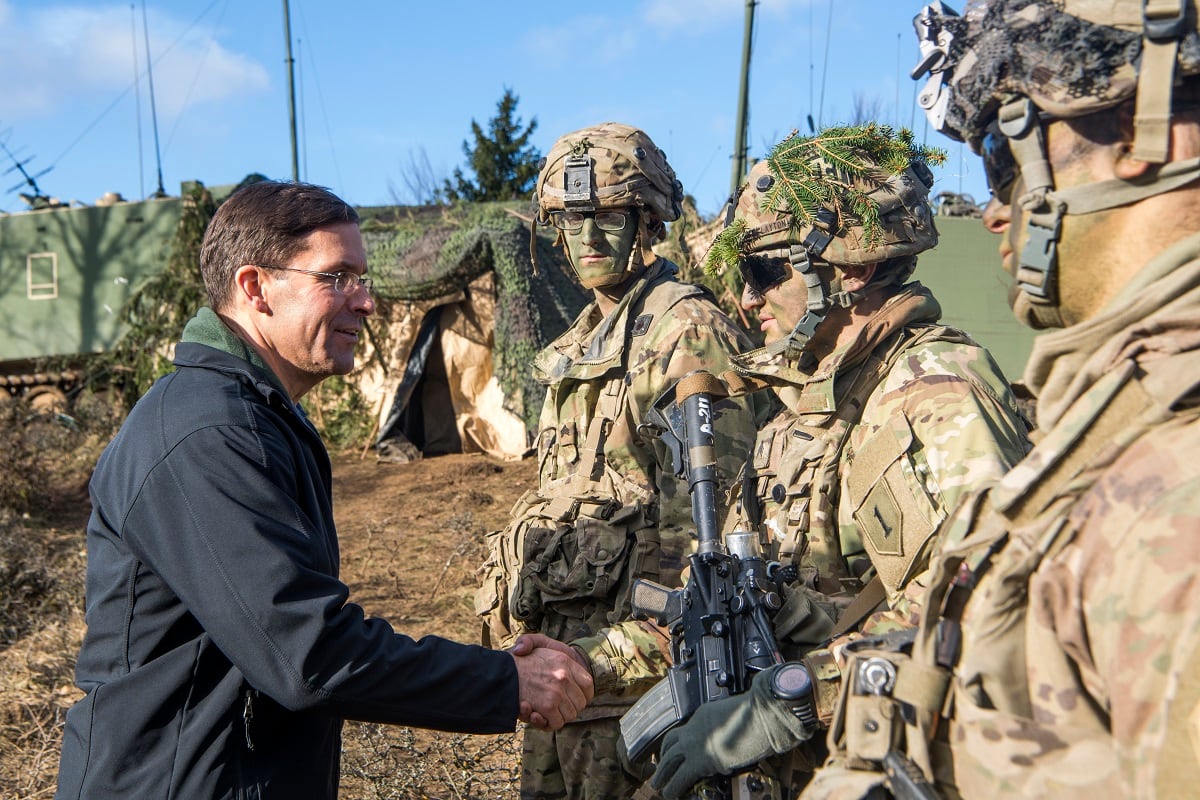The Army’s top civilian is unloading a pile of training not required by the Defense Department in favor of allowing commanders to distribute guidance to their troops on their terms, according a series of memos released in April.
The guidance is part of a larger plan to cut the administrative burden on units, Army Secretary Mark Esper told Army Times in December, and roll-out began this month.
“One of the complaints is we’re doing all this mandatory training. And when you look at the numbers, it is astounding how much it has grown over the years,” he said, comparing the experience to his time as a battalion commander with the 173rd Airborne Brigade in Italy. “I felt that I had, again, great freedom to do what I wanted to do. I felt that I was trusted to train my soldiers, and I was accountable for it.”
The following training programs are out:
- Travel Risk Planning System, TriPS.
- Media awareness training.
- Combating Trafficking in Persons Training.
“It is this type of burdensome requirement that unnecessarily weighs down our Army from focusing on its core mission,” Esper said of TriPS, a training soldiers must complete before traveling, whether personal or official.

Further, according to an April 13 memo, commanders will be able to decide when, where and how to execute required training.
“Mandatory training will not have a prescribed duration for conducting the training,” Esper wrote. “All mandatory training must have alternative methods of delivery which do not require the use of an automated system or project system.”
Neither will there be a set location where training must be done, he said.
RELATED

There will also be fewer command inspections, Esper wrote in an April 23 memo. Subsequent command inspections, in which a company commander is re-inspected a year into his or her tenure, are no longer required.
Further, initial command inspection records won’t be included in deployment records.
And, finally, unit safety officers won’t have to maintain records of motor vehicle accidents for their soldiers.
Esper also enacted a handful of changes to administrative policies and procedures.
The April 13 memo directs units to use existing Army software systems to gather data on troops.
“Commands at brigade echelon and above will utilize these systems to gather data and will no longer establish reporting requirements for subordinates regarding this information,” he said.
Previously, smaller units were made to provide medical and other personnel information on their soldiers to their higher commands themselves.
“This change will reduce the administration burden on subordinate units and thereby enable them to focus on building and sustaining readiness,” Esper wrote.
RELATED

These directives appear to be just the beginning, as Esper called on commanders to review their administrative processes and make recommendations back to headquarters on how to reduce their burdens.
“There’s a lot of frustration out there with mandatory training and mandatory reporting, all these things we’ve burdened junior leaders with,” Esper told Army Times in early April. “[Army Chief of Staff Gen. Mark Milley] and I are working hard to provide them relief on that front, and really empower our junior leaders and make them responsible, and to give them the freedom to train the soldiers in their units the way they feel is best to improve the readiness and lethality of their team.”
Meghann Myers is the Pentagon bureau chief at Military Times. She covers operations, policy, personnel, leadership and other issues affecting service members.





